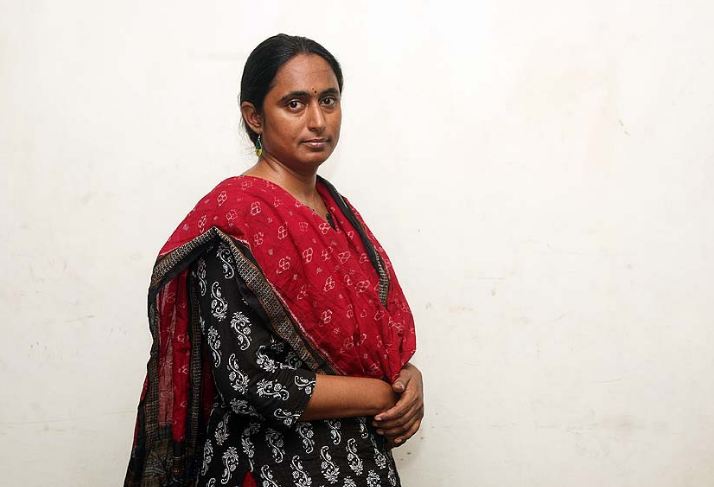How to contact Kavita Krishnan? Kavita Krishnan’s Contact Address, Email ID, Website, Phone Number, Fanmail Address
Hello friends! Are you a follower of Kavita Krishnan? Are you searching on google for How to contact Kavita Krishnan? What is Kavita Krishnan’s WhatsApp number, contact number, or email ID? What is Kavita Krishnan’s hometown and citizenship address? What is Kavita Krishnan’s Facebook, Twitter, or Instagram ID?
Do you have a question; how do I send a fan mail and autograph request to Kavita Krishnan? Please prepare a nice and well-explained autograph request letter. Don’t forget to use simple language and easy-to-understand sentences for quick understanding.
Find out all these things in our article below…
Today I will tell you about HOW TO CONTACT KAVITA KRISHNAN.
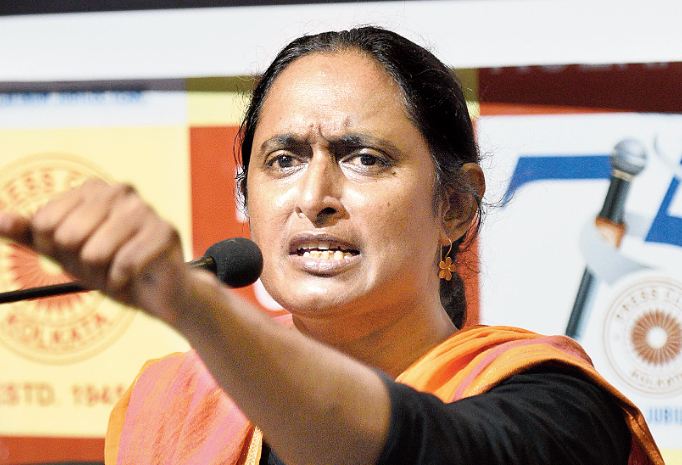
After the gang rape of Nirbhaya in 2012 in Delhi, women’s rights activist Kavita Krishnan brought attention to the issue of violence against women in order to raise awareness of the problem. In addition to that, Krishnan was a member of the politburo of the Communist Party of India (Marxist–Leninist) Liberation and had served on the Central Committee of that organization for more than twenty years. In addition to that, she served as the Secretary of the AIPWA and was the editor of the monthly newspaper titled Liberation, which was published by CPI (M-L) Liberation.
Kavita Krishnan was born in the city of Coonoor in the Indian state of Tamil Nadu to parents of Tamil descent. She spent her childhood in the city of Bhilai in Chhattisgarh. While she was growing up, her mother was an English teacher and her father was an engineer at a steel mill. St. Xavier’s College in Mumbai is where she earned her Bachelor of Arts degree. Jawaharlal Nehru University awarded Krishnan the degree of Master of Philosophy in English Literature. During her time at St. Xavier’s institution, Mumbai (an associated institution of the University of Mumbai), Kavita Krishnan became a member of a theatre company that was directed by Arun Ferreira. She would take part in street plays and demonstrations with the group.
When she attended Jawaharlal Nehru University, where she later received her master’s degree and was chosen Joint Secretary of the Students’ Union in 1995, she began her serious involvement in political action. During this time, she was also a student. During her time at JNU, she was actively involved in the local chapter of the All India Students Association. When she met the student leader Chandrashekhar Prasad, who was also a student at JNU and a member of AISA, she got actively engaged with activism. Chandrashekhar Prasad was also a member of AISA.
Chandu, as he was affectionately known by the students of JNU even today, Chandrashekhar was shot down on March 31, 1997, in Siwan, Bihar, while addressing a street assembly together with another CPI(ML) activist named Shyam Narayan Yadav. Both men were CPI(ML) leaders. After what happened, Kavita Krishnan’s life as an activist took a more severe turn for the worst. Chandrashekhar, who had been the President of the JNU Students’ Union the year before Krishnan was chosen as the Joint Secretary, was the first person to identify her enthusiasm and to advise that she work full-time for women’s rights. Krishnan was elected the Joint Secretary of the JNU Students’ Union.
After Chandu was killed, hundreds of students from the Jawaharlal Nehru University took part in large rallies. They demanded that action be taken against the former legislator for the Rashtriya Janata Dal named Mohammad Shahabuddin, whose men they said were responsible for carrying out the assault. Krishnan was a participant in the demonstrations that took place in Delhi, including those that took place at Bihar Bhawan, when student demonstrators were assaulted by men working for Laloo Yadav. As a result of her involvement in the demonstrations, she was sentenced to eight days in prison.
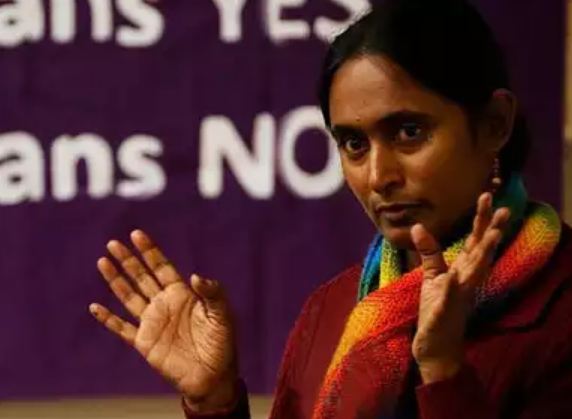
Kavita Krishnan has made significant contributions towards molding the movement’s language, and she has emerged as one of the most powerful activists during the major anti-rape rallies that followed the rape and murder of a 23-year-old girl in India’s capital city, New Delhi. These events were precipitated by the rape and death of the girl. One of the remarks that she gave during the demonstration that took place in front of the home of Delhi Chief Minister Sheila Dikshit swiftly went viral on YouTube and has gotten over 60,000 views up to this point.
In her address, she outlined a type of manifesto for the movement, one that signified a big break from the securitized and protectionist stance that was prevalent at that time and highlighted women’s freedom as the primary demand. her speech was a significant departure from the securitized and protectionist standpoint that was prevalent at that time. During her talk, she argued contrary to the conventional wisdom that the death sentence is the appropriate response to the problem of rape. She pointed out that the conviction rates for rape in India are exceedingly low, and that as a result, tactics such as chemical castration and the death sentence cannot operate as effective deterrents in the country.
She presented a compelling argument in support of arguing on the premise of women’s “unqualified freedom,” sometimes known as “freedom without fear.” Her views on the use of the death sentence have had a significant impact on the way people talk about rape in the wake of the anti-rape demonstrations that took place after December 16th. Kavita Krishnan’s perspectives on “Freedom” were widely reported, and the demand for “Freedom Without Fear” became a rallying point for anti-rape demonstrators.
On September 1, 2022, Krishnan made the announcement to her Facebook followers that the CPI (M-L) Liberation has granted her request to be released from all party roles and duties. Despite this, she would continue to be a member of the party. This is being seen as a consequence of her disagreements with the leadership of the organization on a variety of subjects, particularly those pertaining to China and the conflict between Russia and Ukraine. During the previous several months, she had voiced many objections to socialist and communist governments.
Women’s Web, a famous Indian website that highlights women’s views, gave Fearless Freedom a more well-known and widespread response than any other publication. Fearless Freedom notes that ‘Confinement to the house itself is a sort of violence that is not even recognized.’ The author Piyusha Vir discusses how this awareness served as a ‘rude reality check’ for her. Aishwarya Bhuta wrote an article for the journal Society and Culture in South Asia in which she reviewed the book Fearless Freedom.
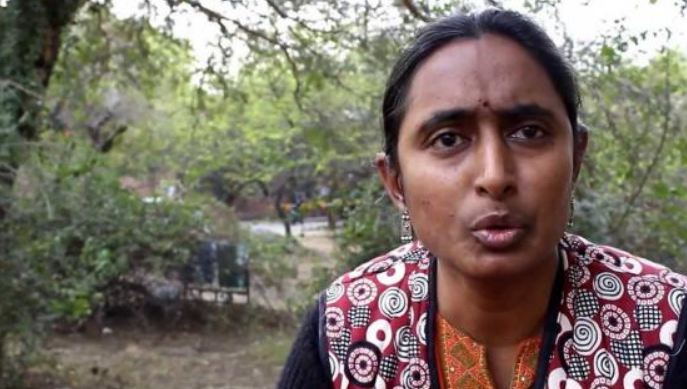
Bhuta discusses how this book was created with the 2012 Delhi Gang rape case as a setting. This makes Krishnan reaffirm her position that the death sentence is not a deterrence to rape and that women’s courageous freedom should be safeguarded at all costs. Bhuta also discusses how this book was written against the backdrop of the 2012 Delhi Gang rape case. According to this review published by Aishwarya Bhuta, the writing style of this book is basic, and it is comprised of personal experiences, excerpts from autobiographies, instances from film, and poetry. The reviewer also mentions that the book was written in a straightforward manner.
As a result of Kavita Krishnan’s sudden departure from all of the posts she had in the Communist Party of India (Marxist-Leninist) Liberation, as well as the reasons she cited to her decision, the challenges faced by the Left in current Indian politics are once again a topic of discussion. The Hindu nationalist Bharatiya Janata Party (BJP) administration, headed by Narendra Modi, is firmly in control. As a result, the once-powerful Left parties have been reduced to a minor presence, both inside and outside of parliament.
The question of whether or not left-leaning parties can continue to practice their politics in the same manner at a time when democratic ideals are coming under growing attack is moot. Also, to what extent are left-leaning parties in India able to confront a government in that country that has authoritarian and Islamophobic inclinations even while they are ambivalent about the institutions in Russia and China? Before we go any further, it is essential that we have a thorough understanding of how the resignation of Kavita Krishnan represents a significant step towards acknowledging the existence of a problem.
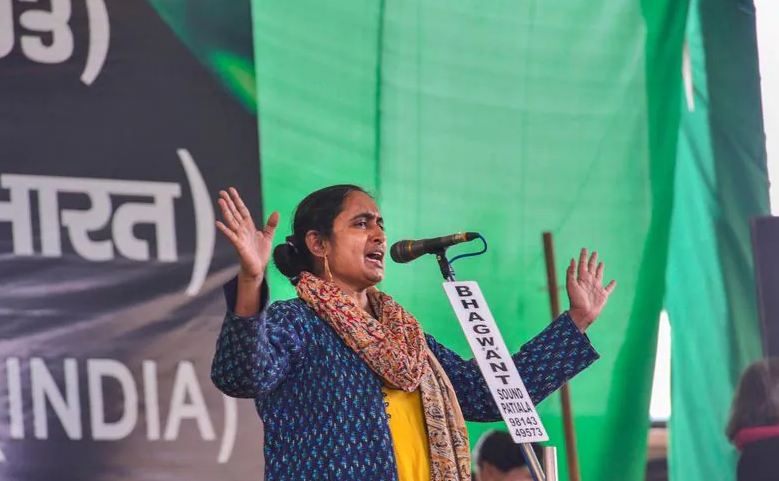
However, some who are linked with the Left in India have been angered by Krishnan’s public rejection of the socialist pretensions of the Russian and Chinese governments. We are unable to assert that Stalin was a socialist; nonetheless, we must make it very obvious that he was a mass killer who was responsible for crimes against humanity. She noted that China’s support for the Myanmar dictatorship, which is responsible for the persecution of Rohingya people, as well as China’s own Islamophobic policies against Uyghur Muslims, ought to be criticized in the strongest possible terms. In spite of the fact that they adhere more closely to a liberal school of thinking, Krishnan is quick to dismiss the idea.
When questioned whether she now had more beliefs that were consistent with those of a social democratic worldview, Krishnan angrily denied that this was the case. “What is it with all of these teeny-tiny labels? Since the beginning of the past century, I have been an avowed communist, and I am from the same region. However, the commitment to preserving democracy must not be confined to only India; rather, it must extend to every country in the globe. It is a common belief that more advanced civilizations, such as those in China, Russia, and Arab countries, existed long before the liberal democracies of the West and their idea of human rights.
At the same time, the concept of multipolarity has emerged as a central pillar of the vocabulary used by global fascism and authoritarianism. It is a rallying cry for despots, and it serves the purpose of helping them disguise their fight against democracy as a struggle against imperialism. The resounding acceptance of multipolarity by the global Left as a welcome statement of anti-imperialist democratization of international relations makes it enormously easier to use multipolarity to mask and legitimize dictatorship. This is because multipolarity is seen as a positive expression of the anti-imperialist democratization of international relations.
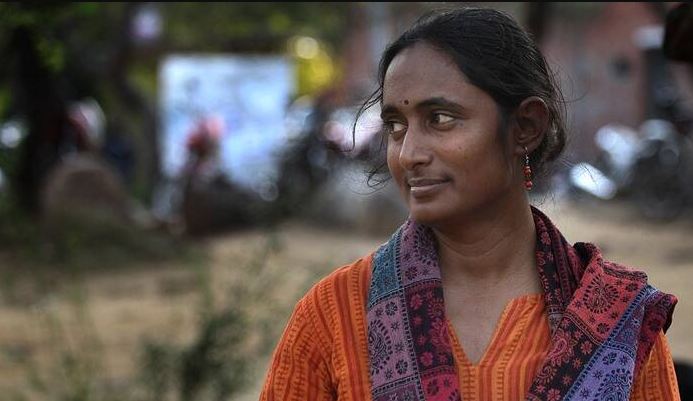
Kavita Krishnan Fan Mail address:
Kavita Krishnan,
Coonoor,
India
The Left maintains a myth that, even at its best, was always deceptive and incorrect by presenting its reaction to political disputes inside or between nation-states as a zero-sum alternative between embracing multipolarity or unipolarity. This view frames the Left’s response as a choice between endorsing multipolarity or unipolarity. However, this myth is very perilous in the modern world since it is used purely as a narrative and dramatic technique to place fascists and authoritarians in positions that are laudatory to them.
The disastrous repercussions of the Left’s dedication to a value-free multipolarity are highlighted quite clearly in the instance of its reaction to the Russian invasion of Ukraine. The Left’s answer was to call for further international sanctions against Russia. By justifying the invasion as a multipolar challenge to US-led unipolar imperialism, the global and Indian Left have legitimized and magnified (to varied degrees) Russian fascist propaganda. This challenge is framed as a multipolar threat to Russia.
On September 30, when announcing Russia’s unlawful annexation of four Ukrainian regions, Russian President Vladimir Putin provided a detailed explanation of what multipolarity and democracy meant within the context of his political ideology. He described multipolarity as the freedom from Western elites’ efforts to promote their own “degraded” principles of democracy and human rights as universal values – values that are “alien” to the great majority of people in the West and elsewhere. Multipolarity is the freedom from these attempts. The Western Left, including anti-Stalinist as well as Stalinist formations, fell victim to facile assessments of the world at some point in time following the large, inspirational anti-war protests.
(2) Nickname: Kavita Krishnan
(3) Born: 18 January 1973 (age 50 years), Coonoor
(4) Father: A. S. Krishnan
(6) Sister: Not Available
(7) Brother: Ashraf
(8) Marital Status: Married
(9) Profession: Activist
(10) Birth Sign: Capricorn
(11) Nationality: Indian
(12) Religion: Hindu
(13) Height: Not Available
(14) School: Not Available
(15) Highest Qualifications: Not Available
(16) Hobbies: Not Available
(17) Address: Coonoor, India
(18) Contact Number: (630) 692-7922.
(19) Email ID: Not Available
(20) Facebook: https://www.facebook.com/kavita.krishnan
(21) Twitter: https://twitter.com/kavita_krishnan
(22) Instagram: https://www.instagram.com/kavitakrishnan1
(23) Youtube Channel: Not Available
Also Checkout: How to Contact D. Raja: Phone Number, Contact, Whatsapp, Fanmail Address, Email ID, Website
